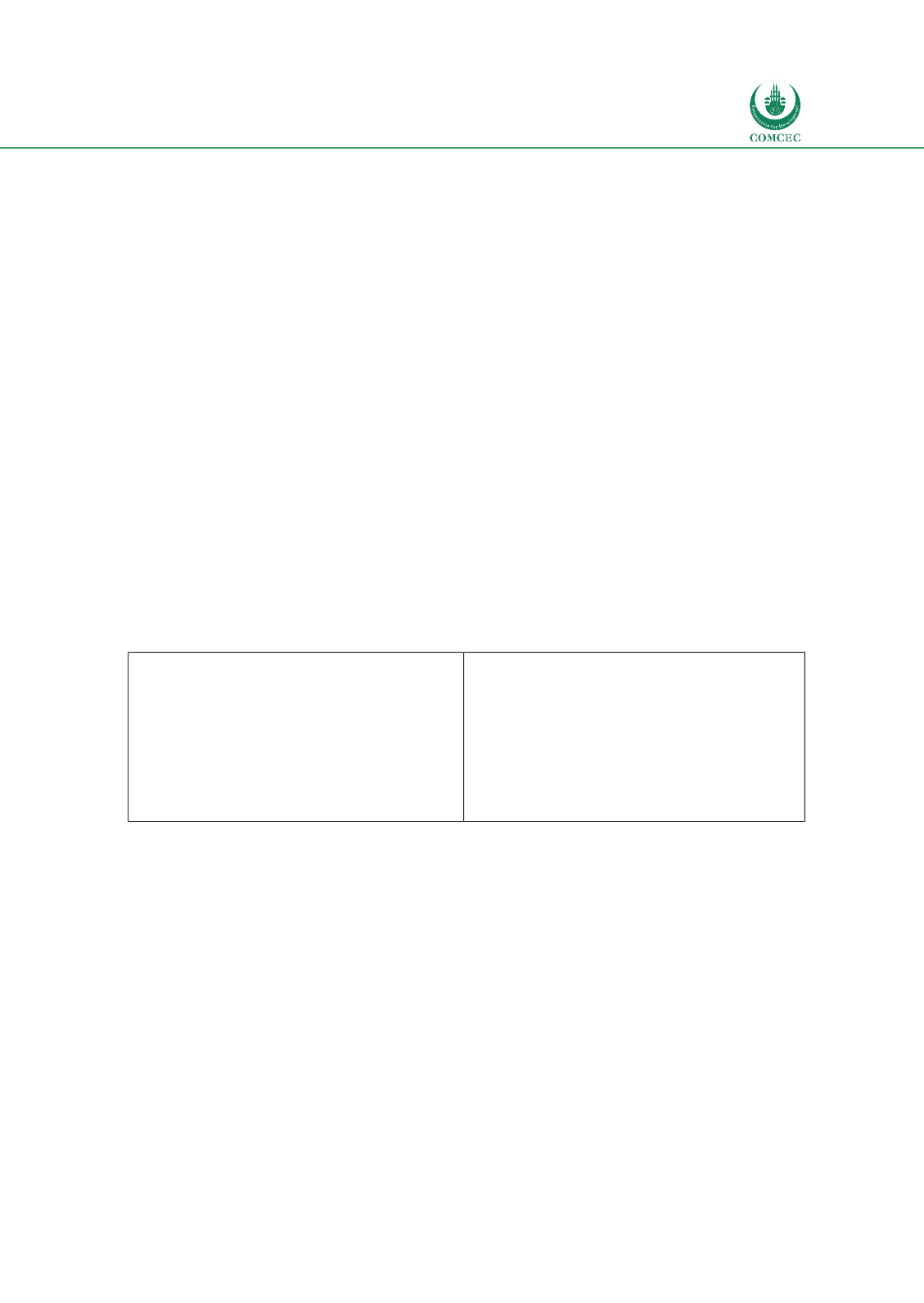

Muslim Friendly Tourism:
Developing and Marketing MFT Products and Services
In the OIC Member Countries
119
highest segment are ‘Singles’ (28%) and ‘Married without children (including young
couples) (14%) are distinct opportunity areas as well.
Middle and high Income levels
: The survey has shown clear consideration for ‘costs,’
and an employed respondent profile mid-income consumers. In addition, based on the
general Muslim traveller source market income levels, middle-class represents the
majority of Muslim travellers. At the same time, a significant portion of luxury travel
concentrated from GCC markets is also a distinct opportunity segment.
Geographic demographics:
Based on the geographic distribution of major Muslim
traveller source markets, following would be key markets of opportunities in order of
priority: MENA-GCC, MENA-Other, East Asia, West, Central Asia
Purpose of travel
Led by Leisure other segments also significant
: In comparison to global travel
purposes (see below), the Muslim traveller purpose of travel are unique in some ways.
While the ‘Leisure’ category is highest and hence should be a major focus for the MFT
market, a few distinctions standout. While both surveys referenced below are not an
exact comparison, nevertheless, VFR (Visiting friends and relatives), religious travel,
business and education seem to stand out much more distinctly as opportunities in the
MFT market.
Table 13: Global travel purposes compared to MFT travel purposes
Global travel purposes
(UNWTO in 2014):
53% Leisure, recreation and holidays
27% VFR, health, religion and other
14% Business and professional
6%Not specified
MFT travel purposes
(Study Survey):
62% Leisure
54% Family and friends
32% Religious
21% Business
16% Education
5% Medical
5.3
Public Policy Gaps/ Opportunities
There are distinct gaps in global public policies as well as in the public policies of mature MFT
markets and other OIC countries.
The symbols in the legend below will be used in this section to identify which of the gaps and
opportunities in the tables beneath each section are suitable for which type of OIC country.
‘Mature Markets’ are countries with well-developed Halal ecosystems and awareness, such as
Malaysia and Indonesia. ‘Progressing’ are those with well-developed ecosystems, for example
there is an availability of Halal food and Islamic heritage sites, but low awareness and absence of
promotion of those products and services to Muslim tourists. Examples of those countries are
most Arab countries, Mozambique and Uzbekistan. ‘New markets’ are countries with weak
ecosystems and low awareness, such as Nigeria and Guyana.
















